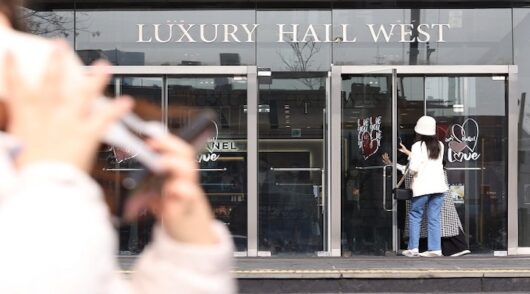Offline retailers in South Korea, once on the verge of a crisis after consumers flocked to e-commerce vendors following the coronavirus outbreak, are now seeing a chance to make a comeback.
As people remain indoors for extended periods due to work-from-home policies and delays to the school year resuming, a growing number of South Koreans are going to local supermarkets and stores to do their shopping.
Local discount retailers and large-sized malls saw sales increases of 1 to 5 per cent after South Korea raised the public health alert to its highest level.
After the World Health Organization declared Covid-19 a pandemic, local supermarket sales jumped by more than 14 per cent between March 8 and 21, while large-sized malls and discount retailers saw their sales drop.
“As the coronavirus outbreak dies down, more people are choosing to go to local supermarkets or convenience stores that are close by, rather than going to large malls that tend to be located further away,” said Hwang Hee-yeong, CEO of Opensurvey, a local pollster.
In other words, South Korea has seen an initial surge in demand at large distributors fragment into demand for products offered at smaller distributors.
Experts argue that this trend may continue even after the coronavirus outbreak is over.
“As the coronavirus is expected to be around for a long time, people are choosing to go to local supermarkets instead of large-size malls and discount retailers. More people are also visiting local stores that sell side-dishes,” said Hwang.
“The coronavirus outbreak has set up a basis for localised consumption, a trend commonly observed among advanced nations.”
H M Kang writes for Korea Bizwire.






